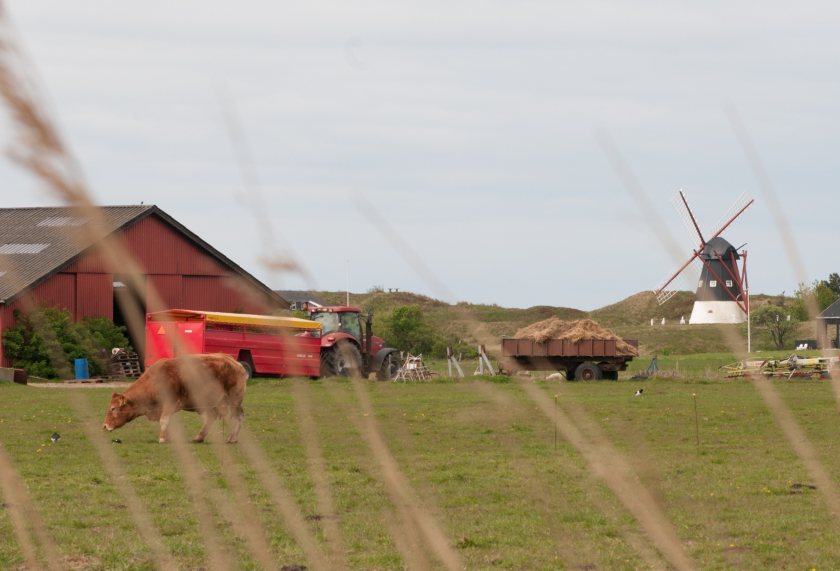
Danish dairy farmers face having to pay an annual tax of 672 krone (£67) per cow due to the greenhouse gas emissions they create.
The Danish government is set to roll out Europe's first carbon tax on agriculture, after months-long talks with farming groups ended in an agreement this week.
The historic move means new levies on livestock agriculture in Denmark - a major pork and dairy exporter - will commence in 2030.
The tax, likely to be approved by parliament later this year, will amount to 300 krone (£34) per tonne (1.1 ton) of CO2-equivalent emissions from livestock from 2030, increasing to 750 krone (£85) in 2035.
A 60% tax break will apply, which means that farmers will be effectively charged 120 krone (£14) per tonne of livestock emissions per year from 2030, rising to 300 krone (£34) in 2035.
Using the lower tax rate of 120 krone means a charge of 672 krone (£67) per cow.
The Danish government will also issue £4.4 billion to reforest 250,000 hectares of farmland by 2045, set aside 140,000 of lowland by 2030, and buy out certain farms to slash emissions.
Foreign Minister Lars Lokke Rasmussen said in a statement: “With today’s agreement, we are investing billions in the biggest transformation of the Danish landscape in recent times.
“At the same time, we will be the first country in the world with a (carbon) tax on agriculture.”
And Economy Minister Stephanie Lose said on X that it was an "agreement which will form the basis for a historic reorganization and restructuring of Denmark’s land and food production."
Elsewhere in the world, New Zealand had passed a similar law which was due to take effect in 2025.
However, this has since been dropped following criticism from farming industry groups.
